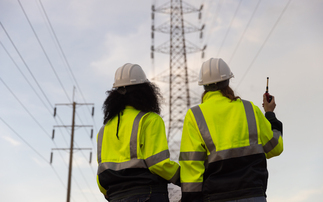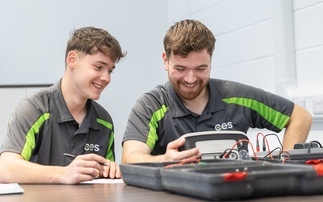What business needs to know to embed sustainable learning into their business strategies
Education doesn't start and end with school. For years personal training and development has been a core component of a firm's HR offer, but rarely have such initiatives coincided with efforts to promote sustainability or environmental care.
Yet as BusinessGreen highlighted last week in its long-read feature into SDG4, the UN Sustainable Development Goal targeting quality education for all, there is a clear need to twin the world's educational efforts with work to tackle climate change and other environmental issues. After all, the climate challenge is, if nothing else, the task of re-designing our thinking about the world and its resources.
BusinessGreen has compiled six expert top tips to help companies looking for a leg up on efforts to meet SDG4.
1. Start at home
Helping your existing workforce access learning will buoy up your talent pool. A UK government Foresight report on the Future of Skills and Lifelong Learning found that upskilling a workforce increases productivity and ensures an ongoing supply of new skills for the organisation. This will be crucially important for industries at the forefront of rapid shifts to low-carbon technologies, from auto makers to energy sector workers.
Not only will green skills become increasingly important for business, offering educational opportunities to employees can also aid recruitment efforts, boost morale and drive innovation within firms.
2. Consider your customers
If you are a consumer-facing company, consider how to use your public communication channels to start a conversation with custoemrs about sustainability. This could take a range of forms, from marketing greener products based on their environmental benefits to designing behavioural 'nudges' to boost recycling or promote resource efficiency, or even rolling out classes or tutorials to the public.
IKEA is taking this approach seriously, with its latest store in Greenwich boasting a roof garden and a Learning Lab where customers, creative partners and the local community can explore how to prolong the life of products and upcycle them, and grow food. Meanwhile, signs around the stores direct customers to shift buying habits and behaviours, signalling energy-saving devices, tips and recycling opportunities for used goods.
Example of a sign at the new IKEA store in Greenwich | Credit: Incisive Business Media
3. Spot the skills gaps
The private sector needs to work more closely with governments and schools, colleges, and universities, to ensure the right skills are being taught to drive economies of the future. In the UK, for example, there is a significant gap in science, technology, engineering and mathematics (STEM) skills, which is a barrier to the development of the green economy.
"We have to respond to the current needs of life and work but also the future in terms of technology and digital skills," says Dr Jordan Naidoo, director of division for education 2030 support and coordination at UNESCO. "Business and workplace demands are changing. You have more collaborative teams, processes where people have to adapt and use lifelong learning techniques. And that can only be done where businesses are more fully involved in defining what is to be part of the curriculum."
4. Wire up the classroom
Technology provides an unprecedented opportunity to improve access to education and to increase its quality, with big commercial opportunities across the globe. Classroom-friendly digital platforms could be worth up to $15bn by 2020, according to Urban Tech Bets, a digital technology project by UNICEF, tech firm Arm and development policy consultancy Dalberg. Meanwhile multi-modal skilling - services that mix online education with in-person mentoring - could be worth US$20-35 billion by the end of the decade.
To catalyse these markets, global tech players should build and distribute better content, gather evidence on the benefits of 'blended' learning, and collaborate with innovators and local entrepreneurs, Urban Tech Bets advises. This could help rapidly accelerate the pace of learning for harder-to-reach communities, engaging millions more people in the effort to build a low-carbon economy.
5. Think local
We Love Reading is a literacy project that aims to foster a love of reading for pleasure among children. It started in Jordan and is now in 46 countries across the world. Founder Dr Dajani believes projects such as these work best when supported by local businesses. "It's more sustainable, ensures funding in the long-run and builds ownership," she says. "When you tie into the SDGs it links you to the globe but it starts locally."
But organisations must ensure educational content is tailored to the local market, and allow people to develop home-grown solutions to challenges. "You get Western programmes that have content which isn't appropriate and doesn't relate to the culture," says Dajani. "Any challenge that you would face in an education sector the local people know the root cause better so they can develop solutions. And because they developed them they have ownership, they will sustain them."
6. Stay one decade ahead
Education is a moving target, because the needs of individuals and economies are constantly changing. Dominic Vergine, head of sustainability and corporate responsibility at technology firm Arm, says the SDGs can act as a useful guide to the future. "The problem with the tech sector is that it can be in a bit of a bubble, in Silicon Valley, Cambridge or other elite hotspots," he says. "We need to look at new customers and not think we can carry on doing everything as we already have. We need to look at how the world is changing, cities are changing, and the global goals are a very good lens for doing that. It's very useful to have a way of thinking a decade ahead."








